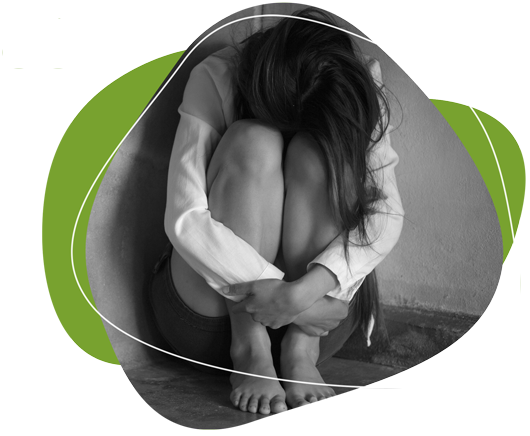Family violence is also called domestic violence or intimate partner violence and can occur in any family or intimate relationship. It does not have to be in the home to be called family violence.
Family violence includes any behaviour that controls or dominates a partner or family member and causes them to fear for their own or another person’s safety or wellbeing. It happens in all kinds of family or intimate relationships and across all ages, communities and cultures. It may include violence from one partner toward another partner, from an adult child toward an elderly parent, from one sibling to another sibling from an older child to a parent, between family members, from a carer towards a person they are caring for.
Children can experience family violence first hand if they witness the abuse of a family member, are present when the abuse occurs (even if they are in another room) or if they see the damage caused by family violence.
Abuse can take many forms and includes:
- Coercive control
- isolating from family and friends
- controlling access to money or how it is spent
- name calling, belittling and putdowns
- making all the decisions and controlling what she does
- preventing practicing of cultural or spiritual beliefs
- intimidation
- making threats
- keeping under surveillance
- withholding medical care
- physically harming
- sexual abuse
Facts about family violence*
- 1 in 4 Australian women (23.0%) has experienced physical or sexual violence by a current or former intimate partner since age 15.
- On average one women a week is killed by a current or former partner.
- There is evidence that women with disability are more likely to experience violence. For example, women with disabilities in Australia are around two times more likely than women without disabilities to have experienced sexual violence and intimate partner violence.
- 1 in 5 Aboriginal and Torres Strait Islander women aged 15 and over has experienced physical violence in a 12-month period. Over one-third of Aboriginal and Torres Strait Islander women who have experienced physical violence in the year preceding 2014-15 identified an intimate partner as the perpetrator of their most recent experience of physical violence.
Regularly news reports tell us that police reports for family violence are increasing each year while other crimes are decreasing. The impact of FV on children is often not identified however police statistics tell us that children are often present during a violence incident. In Ballarat the number of police family violence incident reports is higher than the state average.
The majority of men’s violence against women however is not reported to police, health or support services.
Have you experienced family violence?
Being exposed to abuse, violence or controlling behaviour in any relationship is scary. It is hard to know what to do or where to get help. It is even harder when the person using violence against you is someone you care about and is someone who is supposed to care about you. But there is help available. If you would like help or to talk to someone about what is happening you can:
- Tell someone you trust and ask for their help. That could be a friend, family member or neighbour. Remember your safety is always the priority (for more information about safety planning, click here)
- Contact The Orange Door 1800219819 to talk for advice, support and safety options
- Call and speak to a worker at WRISC or another counselling or support service
- Always call the police on 000 in an emergency. Victoria police have a code of practice that guides them in how best to help.


